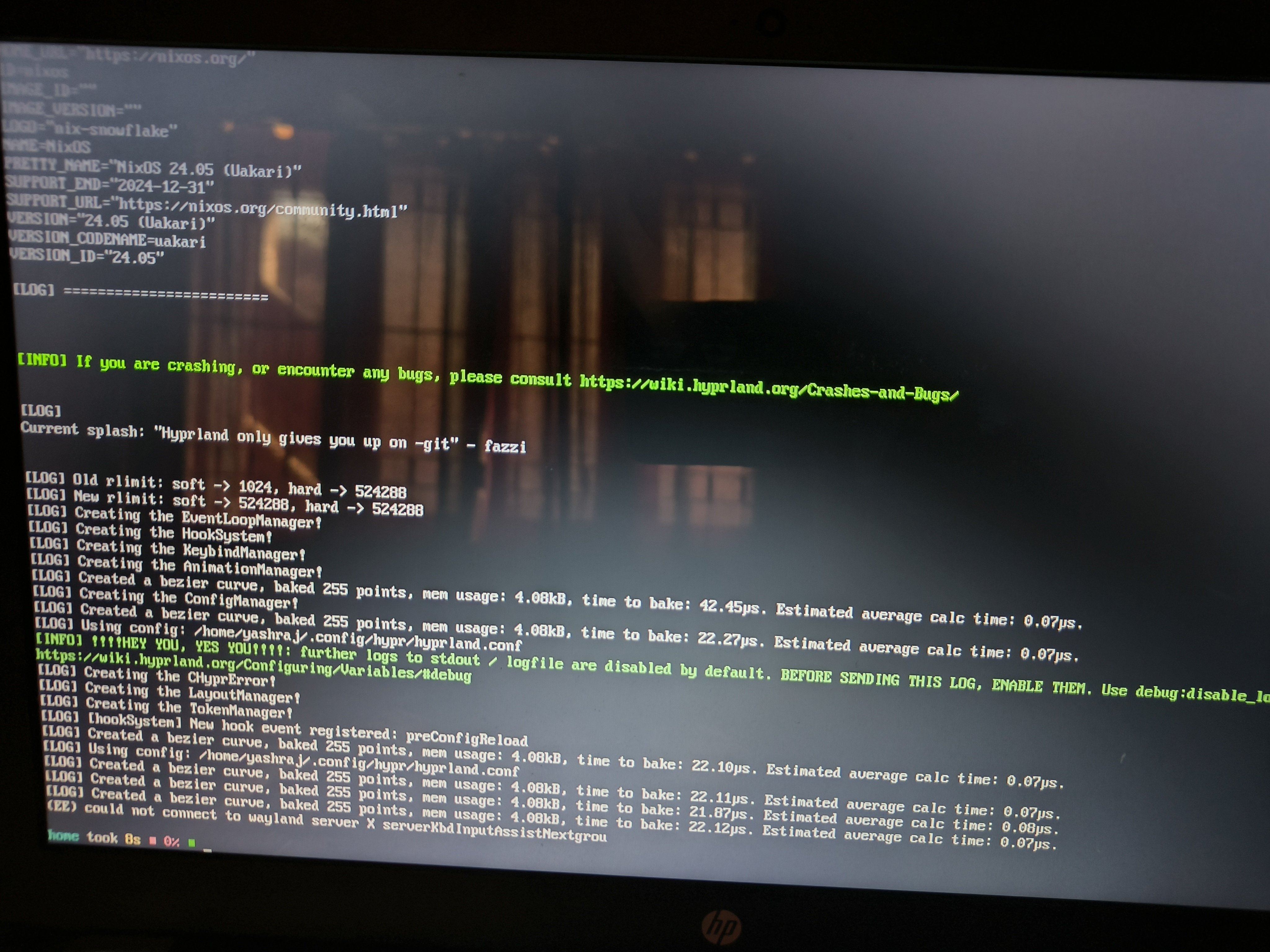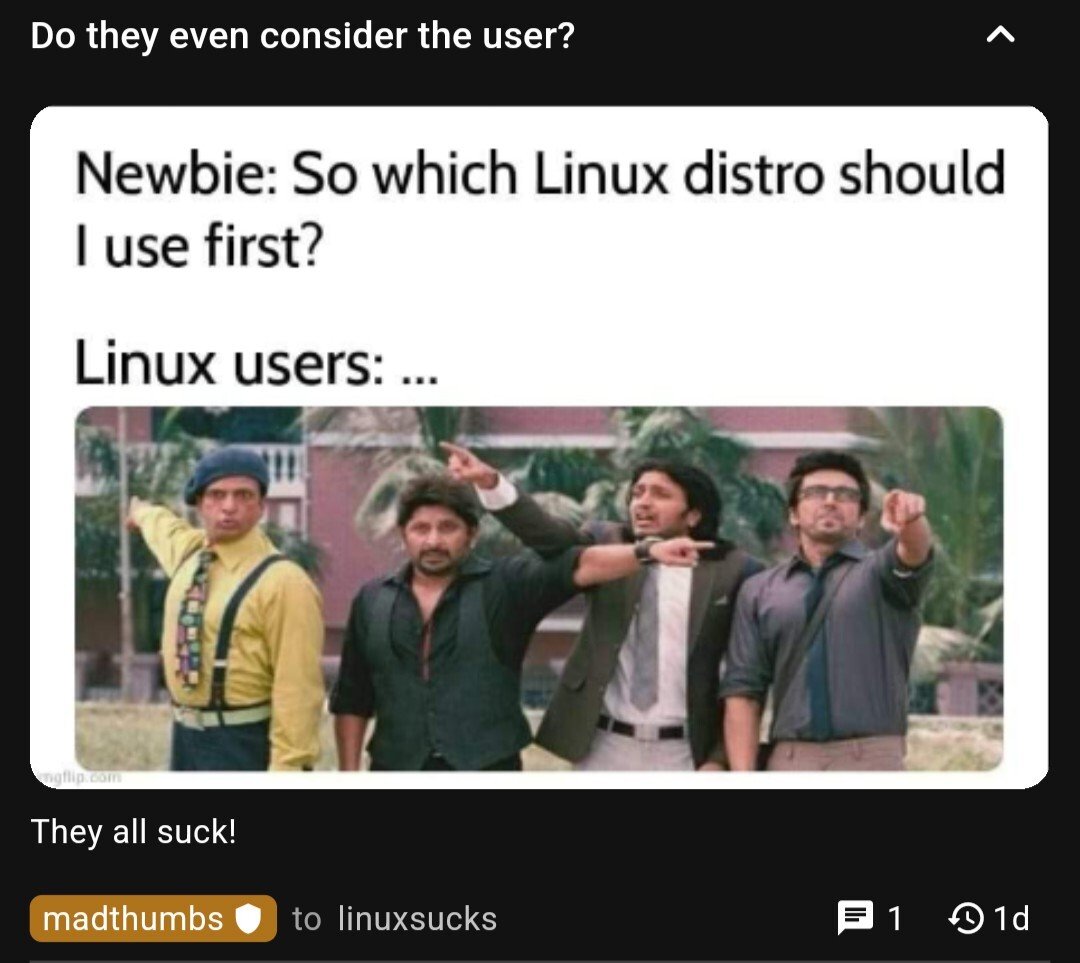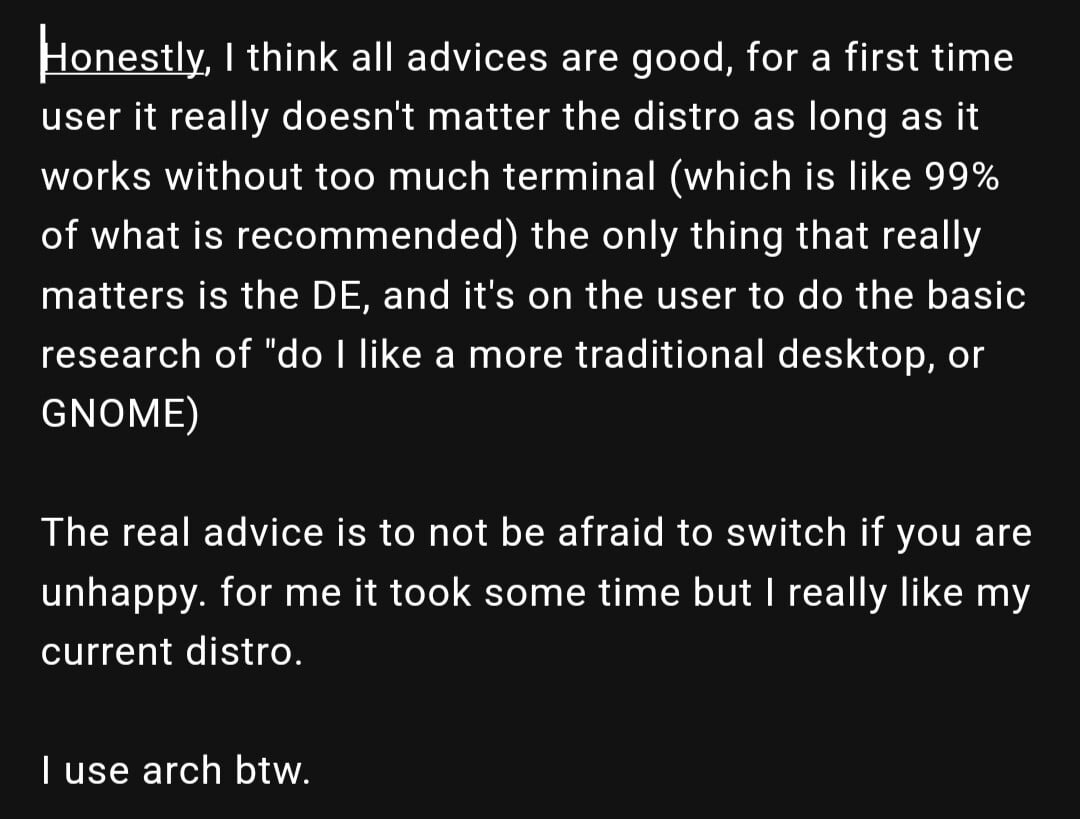Linux
48718 readers
1106 users here now
From Wikipedia, the free encyclopedia
Linux is a family of open source Unix-like operating systems based on the Linux kernel, an operating system kernel first released on September 17, 1991 by Linus Torvalds. Linux is typically packaged in a Linux distribution (or distro for short).
Distributions include the Linux kernel and supporting system software and libraries, many of which are provided by the GNU Project. Many Linux distributions use the word "Linux" in their name, but the Free Software Foundation uses the name GNU/Linux to emphasize the importance of GNU software, causing some controversy.
Rules
- Posts must be relevant to operating systems running the Linux kernel. GNU/Linux or otherwise.
- No misinformation
- No NSFW content
- No hate speech, bigotry, etc
Related Communities
Community icon by Alpár-Etele Méder, licensed under CC BY 3.0
founded 5 years ago
MODERATORS
426
427
428
77
429
430
57
431
432
433
434
435
436
437
438
439
440
441
442
443
444
445
446
447
448
449
16
What Distro should i hop to? Gaming and Development. Moderate Configure complexity.
(discuss.tchncs.de)
450
561
WhatsApp running through android-translation-layer (no container!) on Linux desktop
(lemmy.kde.social)






